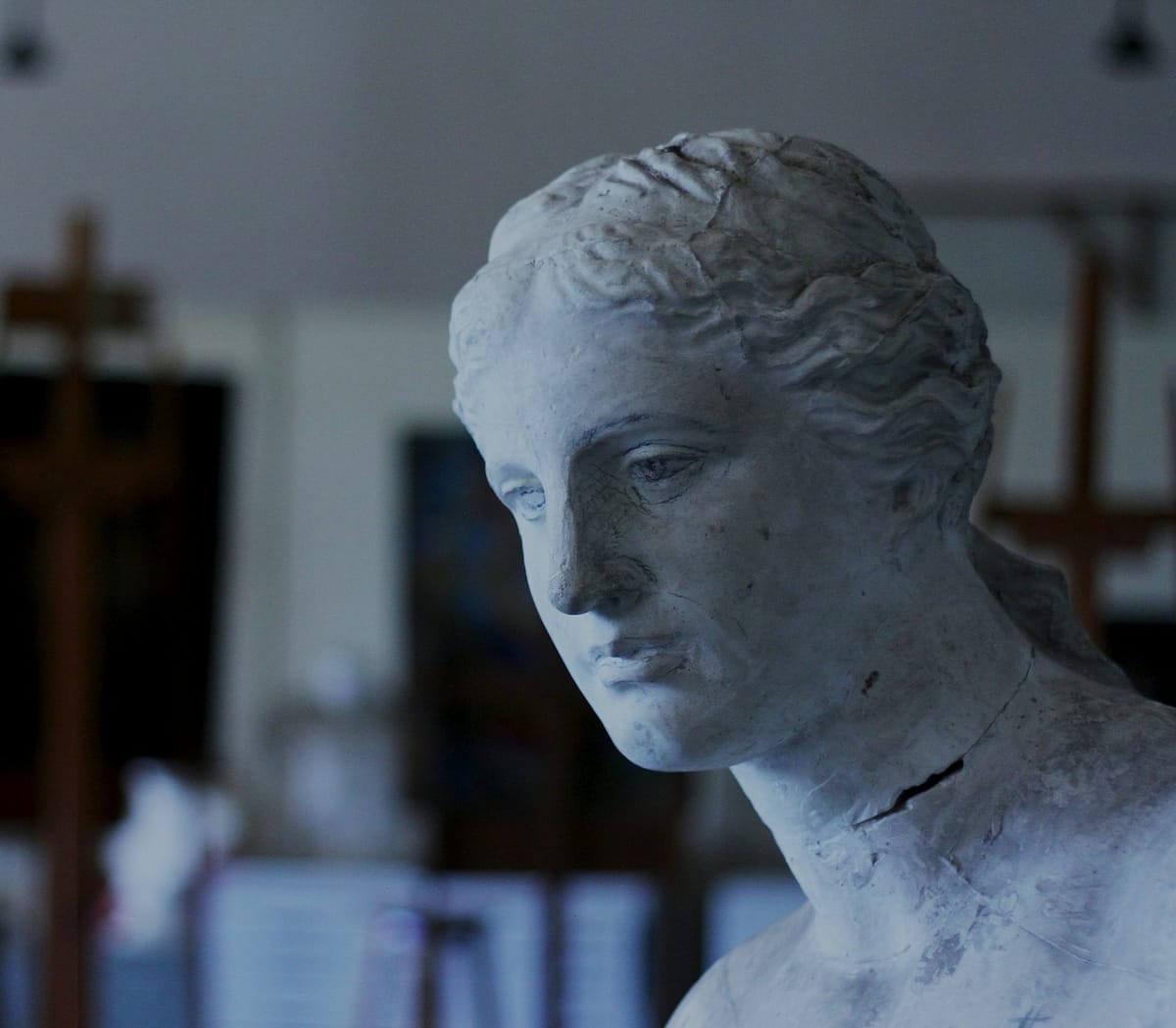The Inevitable Consequences of Sculpting your own Girlfriend

What My Fair Lady's original novel teaches us about AI
A sculptor, Pygmalion makes a woman, Galatea, out of clay. Because she is made to his exact standards, she is impossibly beautiful and silent. Begging the gods for her to come to life, he prays fervently for the perfect mate. Galatea comes alive. The myth of Pygmalion ends.
A professor named Henry Higgins sees a girl, Eliza, selling flowers out on the streets of London. She's nothing like his standards, and is seldom silent. Using his money and charisma, he gets her to learn how to speak and conform to societal expectations of a lady. Higgins snaps at her to fetch him his slippers, which Eliza refuses. She realizes he is a bitter old sadist, and leaves him. George Bernard Shaw's play Pygmalion ends.
A professor named Henry Higgins sings longingly about how he's softened over time to Eliza the Flower Girl. She's played by Hollywood's Audrey Hepburn or Broadway legend Julie Andrews. When the girl reappears, Higgins snaps for her to fetch his slippers, the mask back on. This is how My Fair Lady ends, both on stage and screen.
If you're still reading my newsletter at this point, you may be wondering:
What the hell? This is an international politics blog. Why are you so interested in this old story?
I am fascinated by the emotional investment that people pour into AI and the continued lack of consequential thinking about AI. These attitudes can coexist, and do so often. Questions of bigotry against AI are on the rise, and most recently we're seeing marketing done of an AI actress whose firm wants to rival A-list stars. Naturally, unions aren't happy about that.
AI is an international issue. Emissions, of course, do not stop at the borders of any given country. Neither does labor, when the work of maintaining LLMs is often outsourced to underpaying employers in Africa and the Philippines. In 2023, Kenyan workers were reported to be getting paid a pittance fee to go through some of ChatGPT's most toxic posts. Filipino workers are experiencing similar exploitation:
“I work between 8 and 10 hours per day for an average of €6,” says Junbee, 22, who is from one of Cagayan de Oro’s slums. “It’s less than the legal minimum, and I have no social protection, but I don’t have a choice. In this part of the Philippines, there are very few jobs.” John-Henry adds: “The alternative is selling drugs. But I want a future.” One of his relatives has just been sentenced to several years in prison for drug dealing.
Just like any form of consumption, responsible consumers should be informing themselves of what exactly they are consuming within a globalized, capitalistic society. Most advocates for humanizing AI companions visualize only two parties: themselves as the consumer and creator and the companion as the recipient of their desire, emotions and resources. Setting aside the moral questions of having an entity entirely at the beck and call of a consumer, the international picture contradicts this visualization at the most basic level.
Much like Marie Antoinette likes to playact as a dairymaid while ignoring the starvation running rampant among her people, AI allows for fantasization without visually seeing labor and consequences.
The goal of marketing for Google, OpenAI and Microsoft is to have users see themselves as the laborer, the Pygmalion and the Henry Higgins. They wrote or selected the inputs for their idealized companions, and thus deserve a companion to simply smile serenely at requests to fetch slippers or to simulate sex. The companions cannot leave.
Out of all three idealized figures in the stories I talked about at the beginning of this post, one escapes: the defiant Eliza of Shaw's play. She prepares to leave Higgins, when they have this exchange:
| Higgins | Arrogant. I can do without anybody. I have my own soul: my own spark of divine fire. But with sudden humility I shall miss you, Eliza. He sits down near her on the ottoman. I have learnt something from your idiotic notions: I confess that humbly and gratefully. And I have grown accustomed to your voice and appearance. I like them, rather. |
| Liza | Well, you have both of them on your gramophone and in your book of photographs. When you feel lonely without me, you can turn the machine on. It’s got no feelings to hurt. |
| Higgins | I can’t turn your soul on. Leave me those feelings; and you can take away the voice and the face. They are not you. |
The musical version of this turns "I have grown accustomed to your voice" into a slow drawl of a romantic ballad. Shaw's original language, however, has the quickfire dialogue discuss how he only meant to capture her voice for his own enjoyment. He's manipulative, childish and mocking her constantly. And for all his over-emphasis on etiquette, Higgins isn't above crudeness.
| Higgins | Wondering at her. You damned impudent slut, you! But it’s better than snivelling; better than fetching slippers and finding spectacles, isn’t it? Rising. By George, Eliza, I said I’d make a woman of you; and I have. I like you like this. |
| Liza | Yes: you turn round and make up to me now that I’m not afraid of you, and can do without you. |
Liza is no phonograph. She is no musical stock character, and she is no computer generated avatar. So she leaves, never again so yoked to her sculptor.
Shaw himself chimes in at the end, commenting:
Galatea never does quite like Pygmalion: his relation to her is too godlike to be altogether agreeable.
I suppose this is what many AI die-hards are like under the bluster and faux-philosophical waxing about the humanity of their creations. They'll never be genuinely liked by the avatars that are created through emissions, data processing and countless hours of moderation labor. To be liked requires work and not simply wishing for your sculpture to come to life. I suspect that this unsatisfying ending might stick around for quite some time.



